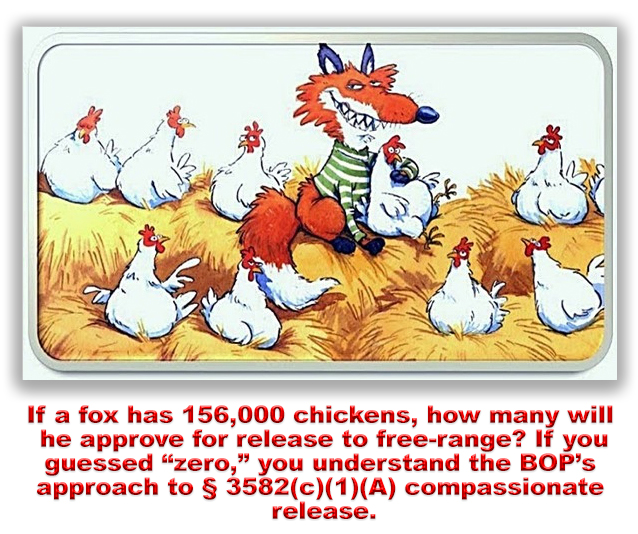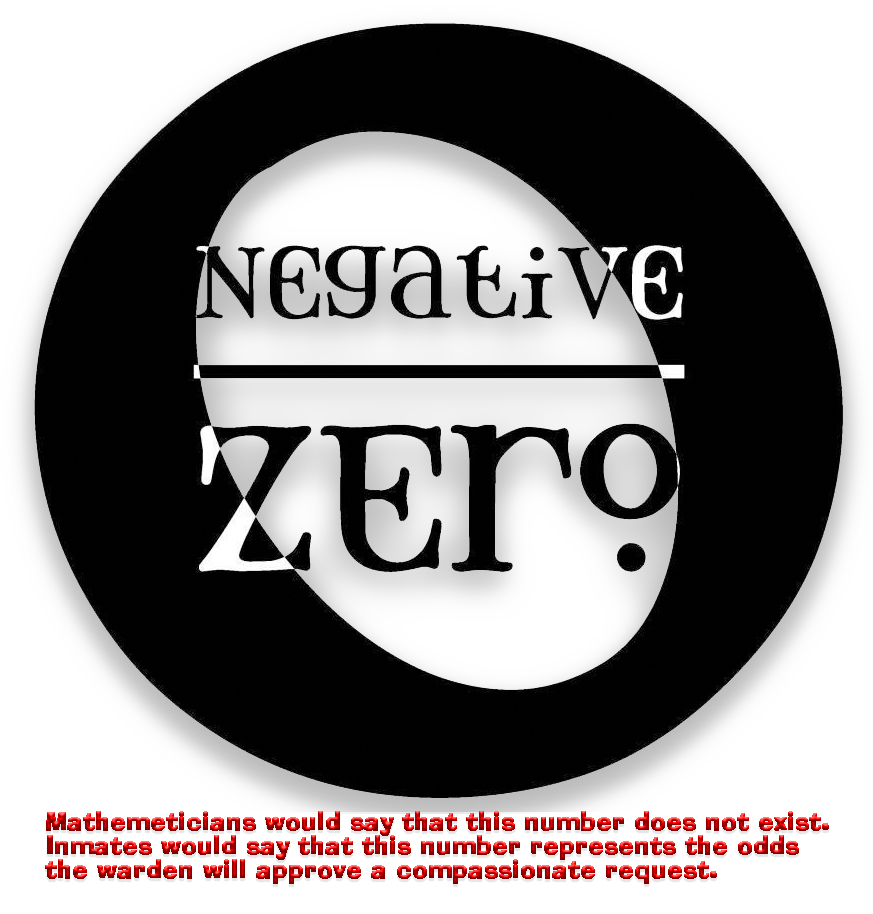We post news and comment on federal criminal justice issues, focused primarily on trial and post-conviction matters, legislative initiatives, and sentencing issues.

COMPLETENESS COUNTS IN COMPASSIONATE RELEASE REQUEST TO WARDEN
 Cory Williams wanted to file for compassionate release based on what he alleged was misconduct by his trial judge. So he dutifully asked his warden to bring the motion, as required by the administrative exhaustion requirement of 18 USC § 3582(c)(1)(A)(i). The BOP refused, of course (as it always does), so Cory himself filed a compassionate release motion with the federal court that had originally sentenced him.
Cory Williams wanted to file for compassionate release based on what he alleged was misconduct by his trial judge. So he dutifully asked his warden to bring the motion, as required by the administrative exhaustion requirement of 18 USC § 3582(c)(1)(A)(i). The BOP refused, of course (as it always does), so Cory himself filed a compassionate release motion with the federal court that had originally sentenced him.
Early on in the COVID-19 pandemic, a number of federal courts adopted standing orders that all inmates filing their own compassionate release motions would have counsel appointed to assist them. Cory’s court was one of those. The court appointed counsel to represent Cory. As we all know, counsel knows best (probably true in this case, where a defendant was essentially asking a judge to acknowledge his own misconduct was so bad that a defendant should be freed from prison). Counsel wisely scrapped Cory’s “I-should-go-home,-Your-Honor,-because-you’re-a-bum” argument, and filed an amended compassionate release motion that sought Cory’s based solely on COVID-19.
The government argued Cory had not exhausted his remedies with the BOP, because he had not raised his susceptibility to COVID-19 to the warden as a reason for compassionate release. Last week, the 7th Circuit agreed with the government.
“We have not yet had occasion to consider whether, in order properly to exhaust, an inmate is required to present the same or similar ground for compassionate release in a request to the Bureau as in a motion to the court,” the Circuit ruled. “But now that the issue is squarely before us, we confirm that this is the rule — any contrary approach would undermine the purpose of exhaustion.”
 “The purpose of exhaustion…” That’s like saying the purpose of taking your kid to see Santa Claus at the Mall is to be sure he brings her the right toys on Christmas morning. Between March and December 2020, the BOP only granted 11 out of 10,940 inmate requests (that’s 0.001005484%, for you math fans). Let’s round that to about one out of 1,000 requests.
“The purpose of exhaustion…” That’s like saying the purpose of taking your kid to see Santa Claus at the Mall is to be sure he brings her the right toys on Christmas morning. Between March and December 2020, the BOP only granted 11 out of 10,940 inmate requests (that’s 0.001005484%, for you math fans). Let’s round that to about one out of 1,000 requests.
The § 3582(c)(1)(A)(i) exhaustion requirement seems like so much Kabuki theater. No matter. A request to the warden is the price of admission, and that request should clearly state the grounds the inmate intend to use when he or she petitions the court without the BOP’s help, as invariably is the case.
United States v. Williams, Case No 20-2404, 2021 USApp LEXIS 3762 (7th Cir. Feb. 10, 2021)
– Thomas L. Root

